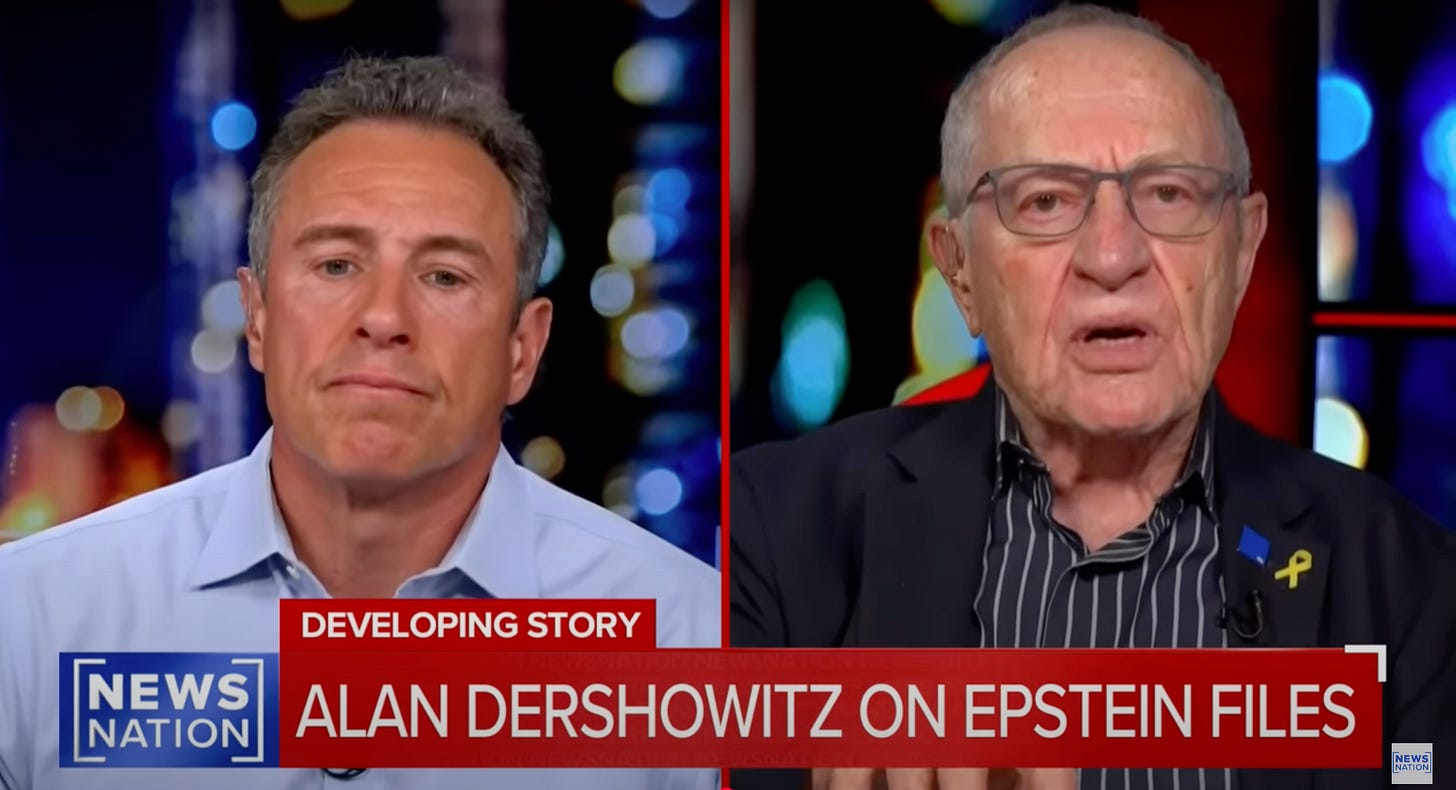Dershowitz Defends Epstein in WSJ Op-Ed — but His History Clouds the Message
In defending Epstein and dismissing conspiracy theories, Alan Dershowitz invites scrutiny of his own long, complicated ties to the disgraced financier.

On July 15, 2025, Alan Dershowitz published an op-ed in The Wall Street Journal rejecting conspiracy theories about Jeffrey Epstein and urging transparency over sealed court records, according to a report by The Wall Street Journal. While his column argued that speculation around Epstein is unfounded and fueled by gossip, Dershowitz’s own decades-long relationship with the convicted sex offender has raised doubts about his objectivity and credibility.
Architect of the 2008 Plea Deal
Dershowitz represented Epstein during the 2006–2008 federal investigation into sex trafficking. As part of Epstein’s legal team, he helped negotiate a controversial non-prosecution agreement that allowed Epstein to plead guilty to lesser state charges, serve just 18 months in a local jail, and register as a sex offender. In 2019, a federal judge ruled the deal violated victims’ rights by excluding them from the process, intensifying criticism of those who arranged it.
Beyond his legal work, Dershowitz acknowledged a personal acquaintance with Epstein, facilitated through mutual friends. Even after Epstein’s first conviction, he publicly defended him, declaring: “I stood by his side because everyone deserves a defense.”
A Defendant in His Own Right
In 2014, Virginia Giuffre, one of Epstein’s most vocal accusers, alleged in court filings that Epstein trafficked her to Dershowitz for sex when she was underage. She claimed this occurred multiple times at Epstein’s properties and on his private jet. Dershowitz denied the accusations, describing them as fabrications aimed at extorting wealthy men.
The ensuing legal battle between them lasted years and culminated in a 2022 settlement. Giuffre issued a statement acknowledging she “may have made a mistake” in identifying Dershowitz, and both parties dropped their respective lawsuits. While the case ended without a finding of wrongdoing, it cemented Dershowitz as a central, controversial figure in the Epstein saga.
Questioning the “Client List”
In his op-ed, Dershowitz asserted there is no official Epstein “client list” and claimed that no current U.S. officeholders were implicated in sealed court documents. He admitted that he personally knows the names of several individuals named by victims — information he says is covered by court orders that prevent disclosure — and argued that the media should petition courts to release all names so the public can evaluate the evidence for itself.
However, critics contend that Dershowitz’s position as both a possessor of sealed information and a defender of Epstein undermines his credibility. His calls for transparency, they argue, seem at odds with his own history of working to limit the scope of public knowledge in defense of his client.
Conspiracies, Suicide, and His Own Narrative
Dershowitz’s column dismissed theories that Epstein was murdered, arguing that the evidence supports suicide, though he speculated that negligence by jail staff may have contributed to his death. He also rejected claims that Epstein was tied to intelligence agencies, attributing such stories to confusion with Robert Maxwell — Ghislaine Maxwell’s father — who was known to have connections to Mossad.
Yet, by portraying critics as “gossip mongers” and downplaying the gravity of his own entanglement, Dershowitz risks reinforcing the perception that he is more concerned with protecting his legacy than illuminating the full extent of Epstein’s crimes and enablers. As The Independent and New York Magazine have noted, Epstein’s victims continue to fight for accountability and transparency, and many view dismissive attitudes from powerful men as another betrayal.
The Weight of His History
In recounting his role in Epstein’s defense, Dershowitz included his own anecdote: receiving a massage at Epstein’s home from “an older, overweight Russian woman” while wearing shorts — a story he has used to distance himself from allegations of sexual misconduct. Instead, the anecdote underscored how enmeshed he was in Epstein’s world.
His critics argue that Dershowitz’s decades-long association with Epstein — as lawyer, friend, and accused — makes him an imperfect messenger for dismissing conspiracy theories and calling for transparency. As one victim told The Daily Beast: “Every time someone like him tells us to move on, it feels like they’re telling us to forget what happened.”



